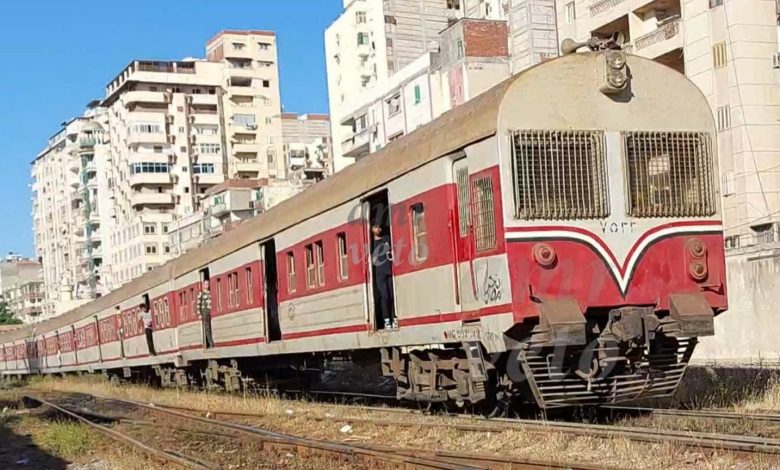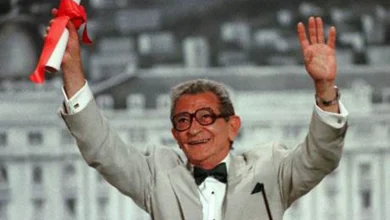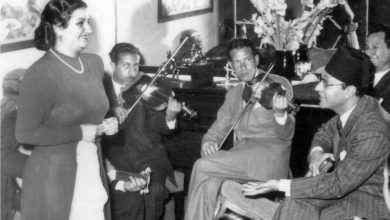
The Abu Qir Train: a one way ticket and lost memory
As we wait for the promised fast and efficient metro that is replacing the slow-paced Abu Qir train in Alexandria we should ask ourselves what Alexandria has in fact lost by shutting down the slow suburban train. People of a certain age will have it embedded in their childhood memory, just like the dilapidated passenger bus; it’s slowness and constant breakdown, causing boredom and ennui, yet inspiring and charming with a creative spirit familiar to its passengers. It was a reminder of our childhood, youth and adulthood and a repository of many images, scenes and memories.
When the train makes its way along the railway line, passing through small stations, traversing popular neighborhoods and impoverished areas rippling with noise and uproar, it resembled the simple faces it carried. All crowding together to announce their sorrows and pain. The train was slightly wide, with long metal seats spread out on its banks, occupied by crowds of men, women, and children. Large masses of people descend, and others arrive, as the corridor narrows with figures overwhelmed by misery and sadness, with wide eyes, disturbed and afflicted with pain and suffering.
***
The train’s world has nothing but voyeurism and silence interrupted by the fall of the human shield, to reveal an open society, tearing apart what has been concealed for a long time, and emptying hearts filled with despair and discontent, secrets and confessions, in loud or low daily chatter and whispers, telling stories, revealing the secrets of souls, naked feelings and emotions, and “talking about politics” passengers whispers touches on all of that with secrecy and hesitation, confirming the enormity and fragility of the crisis the society is suffering from and the feelings of repression and fainting hope.
***
The train’s passengers become accustomed to all of this, due to the familiarity they develop with the train through the years. Familiarity with the train and the neighboring streets, alleys, and stations the train passes through. Passengers themselves whether they are one-time riders or frequent passengers become inhabited within the train as it envelopes them.
On holidays, its passengers multiply, especially on Fridays. They go early in the morning, accompanied by families and in-laws, towards the stations in joy and happiness, bringing with them a supply of fruit, sweets, and refreshments to visit family and relatives, and they return in the evening carrying the same spirit and overwhelming euphoria. They compete like train conductors who are only waiting to impose a fine on those who do not have a ticket, and some police informants are often scattered, looking at the faces to hunt down some of those with criminal records.
***
The corridor, which is full of crowded passengers, is often interrupted by vendors who walk the train and its stations over and over again, chanting rude calls with nasty yet persistent meanings that force train customers to buy meager and unwanted goods. Besides the vendors there are a lot of beggars/sellers and many who feign illness or people with disabilities in shabby robes, who groan and moan, to get mercy and pity along with some pennies out of passengers’ pockets.
But that is not all, there is also the frequent scene of couples trying to steal moments of solace, love, and passion by searching for less noisy nooks and crannies and more discreet corners of the passenger cars or between the train cars trying to hide from prying eyes. Fights would often break out inside the train between passengers; young men, men, and women, without us knowing what led to this commotion and anger. We only hear clashes, women’s screaming, and children’s cries, and suddenly, everything that happened is resolved as if it never happened and the train goes back to silence or lack thereof.
The passengers become accustomed to the train, due to the familiarity they developed with all of this and because they are the residents of the neighboring streets and alleys. They live so close to the stations of the train.
The train is always late and seldom arrives on time, so the station platform is always crowded with passengers. Conversations and debates rage, and comments are made: “In the past, we used to set our clocks to the train’s time,” “No one works anymore,” “No one is watching or monitoring the train timings,” passing through emotions of resentment and dissatisfaction until the train arrives and the commotion does not stop as there is a scramble to get a place on the train.
***
Often, accidents caused by the train take place, especially when it collides with a person, leading to death, and we would witness pandemonium and chaos. The train breaks down, passengers rush to the scene of the accident, and the features of grief appear among the women, and the explanations are multiple, and some do not care about anything and begin the journey of walking on the train’s path towards any choice.
The “Abu Qir” train was full of life and a wealth of experiences. Qualities that can not be acquired by other vehicles that are characterized by speed. Perhaps slowness, is the legacy of the train, but also it was where isolation was no longer.




